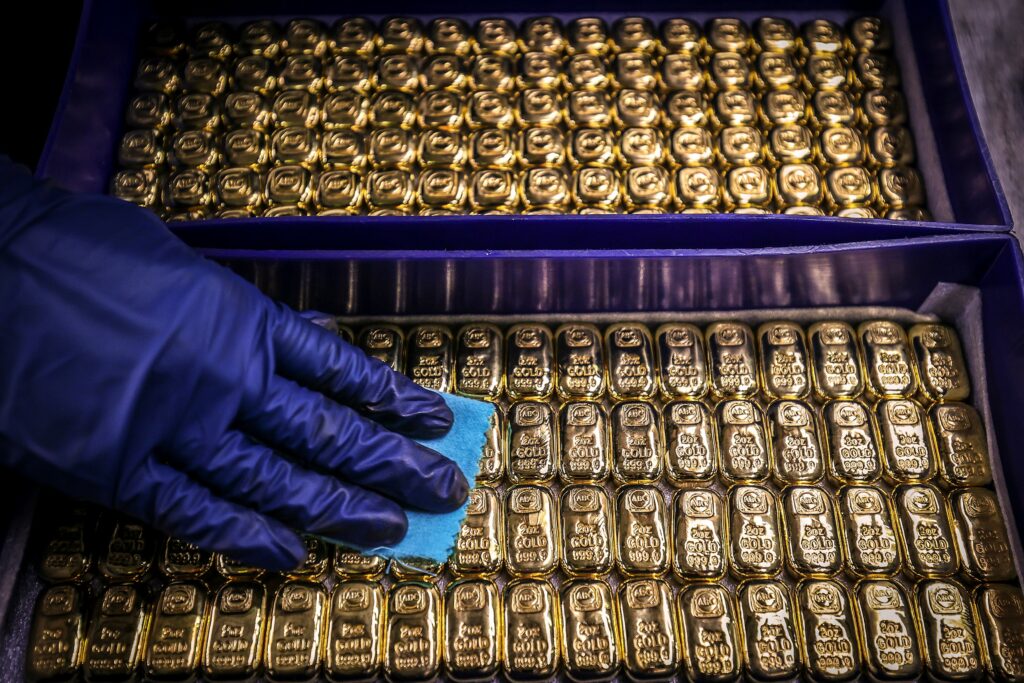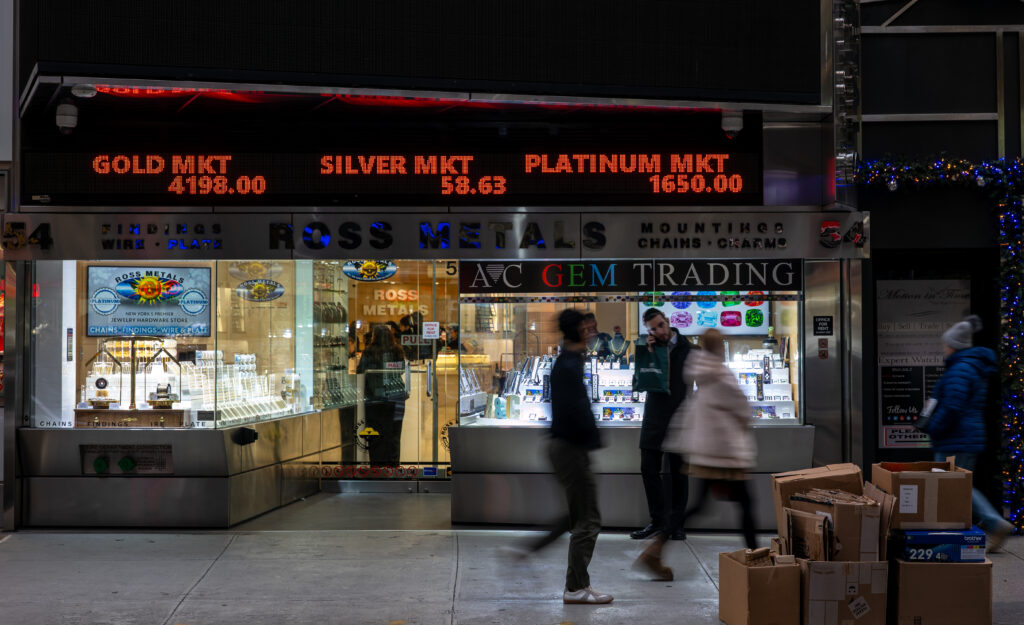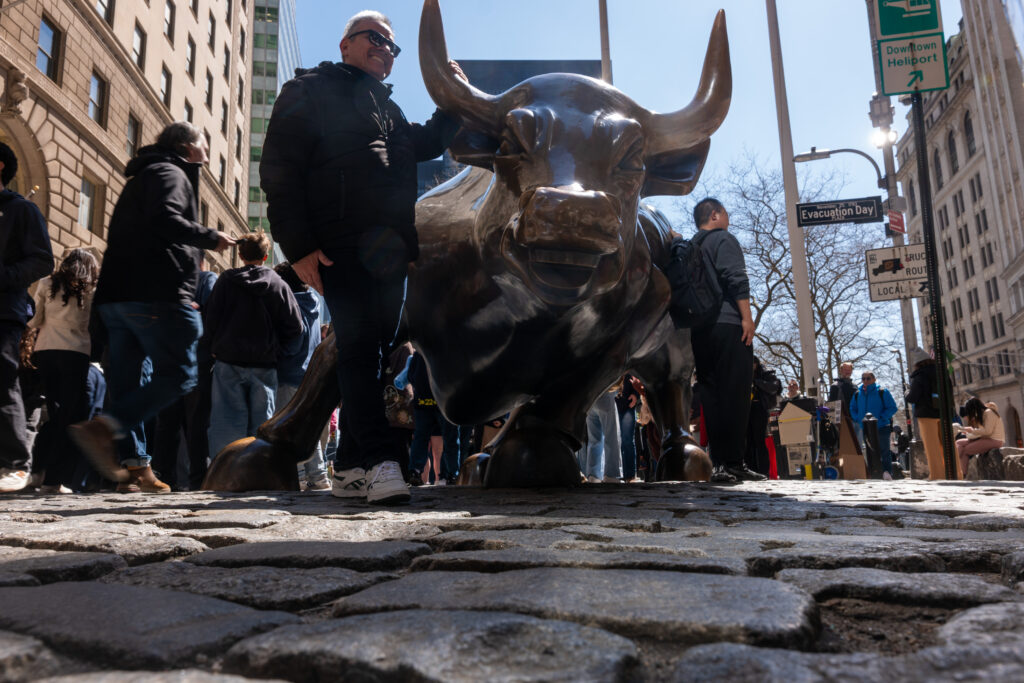Stocks mixed, silver rebounds as 2025 trading winds down
Stock markets were mixed on Tuesday while silver prices rebounded amid volatile trading in precious metals.Wall Street’s main indices closed slightly lower as worries over valuations of artificial intelligence stocks lingered in the final days of the year.”There hasn’t been much that has moved markets” in the past few days, said Art Hogan of B. Riley Wealth Management. “Today is no different.”Adam Sarhan of 50 Park Investments told AFP that it is “perfectly normal for the market to pause, consolidate, go down a little bit.””Right now, the market is consolidating a very strong rally from April’s low until October,” he added.The major US indices remain on track for solid gains over the full year.The Federal Reserve’s monetary easing in the second half of this year has been a key driver of the rally, compounding a surge in the tech sector on the back of the vast amounts of cash pumped into all things AI.It also helped offset recent worries about a possible tech bubble and warnings that traders might not see a return on their investments in AI for some time.Minutes of the Fed’s recent policy meeting in December indicated that most Fed officials see further rate cuts as appropriate, if inflation cools over time as expected.But when it came to the extent and timing of reductions, some officials suggested that it was likely appropriate to keep levels unchanged for some time after December’s cut.”Perhaps one of the biggest threats to stock indices for 2026 is an end to interest rate cuts, or even rate hikes in the major economies,” Kathleen Brooks, research director at trading group XTB, noted Tuesday.Investors, including central banks, have been piling into dollar-denominated silver and gold on expectations of more cuts to US interest rates next year.Gold, in particular, has rocketed to record highs this year thanks to its status as a safe-haven investment amid geopolitical unrest.The price of silver jumped 5.5 percent to $76.09 an ounce Tuesday, having reached a record-high $84 on Monday before tumbling as investors booked profits.Silver, a key industrial metal as well as being used for jewellery, has won additional support from tight supply concerns.Europe’s main stock markets ended the day with gains.Frankfurt, which is closed on Wednesday, ended the year with a gain of 23 percent.The CAC 40 index in Paris was heading for an annual gain of more than 10 percent and London’s FTSE 100 of over 21 percent.Asian markets have enjoyed a healthy year, with Seoul’s Kospi piling on more than 75 percent and Tokyo’s Nikkei 225 more than 26 percent — both having hit records earlier in the year.But the two edged down Tuesday, with Sydney, Mumbai and Taipei also lower. Hong Kong, Singapore, Wellington, Bangkok and Jakarta rose. Shanghai was flat.In company news, shares in Facebook owner Meta rose 1.1 percent after it announced it had agreed to buy Manus, an artificial intelligence agent created by a company founded in China but now based in Singapore.- Key figures at around 2115 GMT – New York – Dow: DOWN 0.2 percent at 48,367.06 points (close)New York – S&P 500: DOWN 0.1 percent at 6,896.24 (close)New York – Nasdaq Composite: DOWN 0.2 percent at 23,419.08 (close)London – FTSE 100: UP 0.8 percent at 9,940.71 (close)Paris – CAC 40: UP 0.7 percent at 8,168.15 (close)Frankfurt – DAX: UP 0.6 percent at 24,490.41 (close)Tokyo – Nikkei 225: DOWN 0.4 percent at 50,339.48 (close) Hong Kong – Hang Seng Index: UP 0.9 percent at 25,854.60 (close) Shanghai – Composite: FLAT at 3,965.12 (close)Euro/dollar: DOWN at $1.1748 from $1.1766 on MondayPound/dollar: DOWN at $1.3468 from $1.3504Dollar/yen: UP at 156.43 yen from 156.06 yen Euro/pound: UP at 87.23 pence from 87.00 pence Brent North Sea Crude: FLAT at $61.92 per barrelWest Texas Intermediate: DOWN 0.2 percent at $57.95 per barrelburs-rl/tmc-bys/jgc


